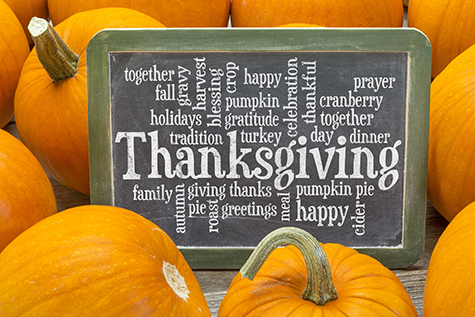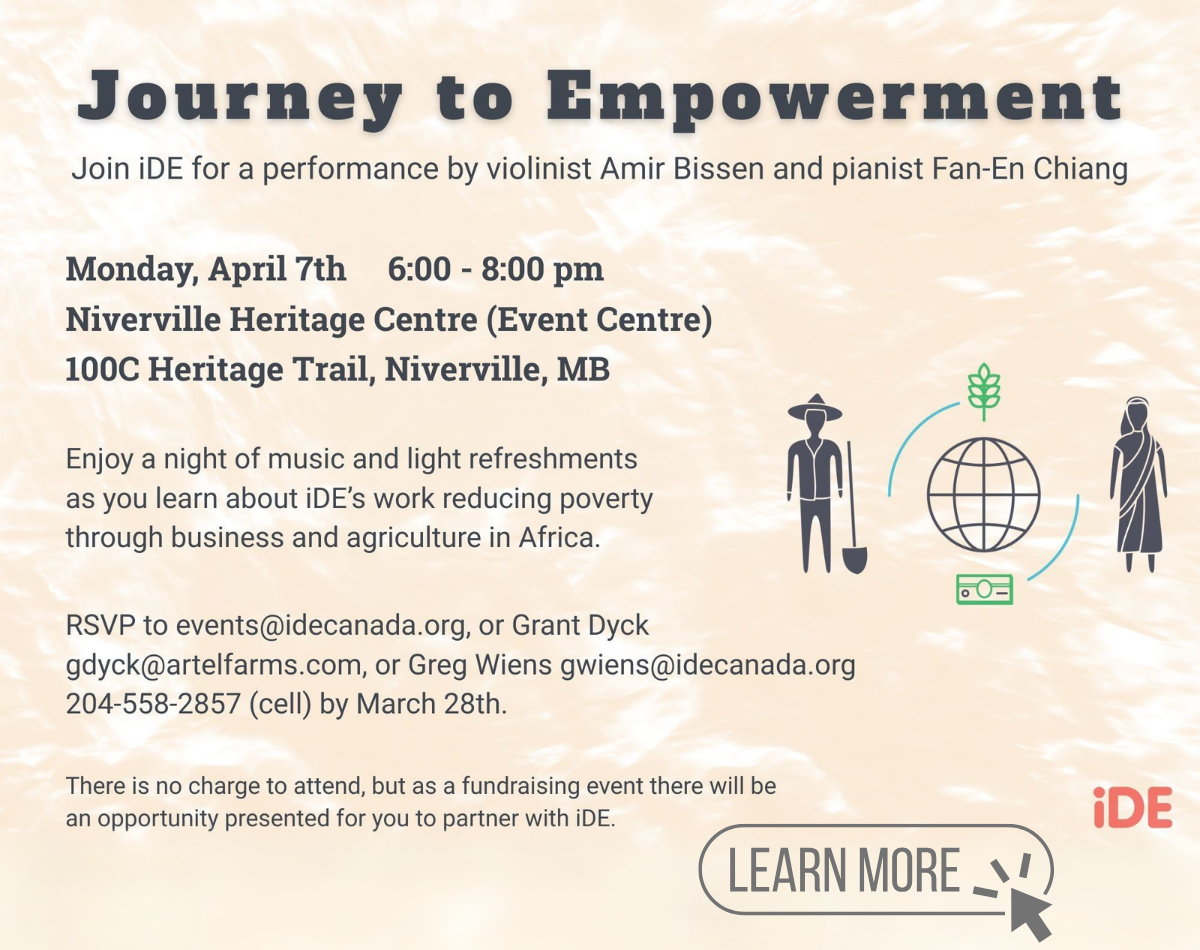
Thanksgiving is not all about turkey, stuffing, and cranberry sauce. The name of the holiday conveys what the day is supposed to be about. It has been observed that the word “thank” comes from the root word “think.” The term implies that if we would be more thoughtful, we would be more thankful. G. K. Chesterton went so far as to say that “giving thanks is the highest form of thought.”
Living beyond our stress threshold, and the anxiety that results from stress, is a big problem in Canadian society today. The simple solution to stress is to have an attitude of gratitude.
Life is really 90% about attitude and only 10% about the facts as we perceive them. Our attitude is a choice, and choosing our responses to our environment is the one freedom no other person can take from us. When we give thanks in all things, we see hardships and adversities in the context that all things have a meaning and purpose,
and will result in a greater good in the future if we persevere.
An attitude of gratitude is important not just for our future wellbeing, but even in our present circumstances.
Research has shown that people who regularly practice being thankful have an advantage when it comes to their mental, emotional, and physical health. They are more likely to have improved mental alertness, cope with stress and daily challenges, feel happier and more optimistic, have stronger immune systems, and maintain a brighter view of the future.
How can we apply this to our daily lives?
Focus your attention outward. When you focus inward, you think only of yourself. When you focus outward, you begin to realize how blessed you are in comparison to most other people in the world today.
Be mindful of what you have. You may assume that those with more material possessions have more to be grateful for. Research shows that people are happier if they are grateful for the positive things in their life rather than worrying about what they might be missing.
Reframe situations to make room for miracles. Mentally flip the switch to see things differently. The new science of epigenetics teaches that it is not biological determinism but our perceptions and experiences that remodel our genes. This means that we cannot blame anyone else, nor are we victims of the environment.
As we go to the polling stations on October 19, let’s reflect on Thanksgiving Day, a week earlier on October 12. As important as this election is, the most influential people in Canada aren’t necessarily those who pass laws, but those who can connect with people’s hearts and impact the way they think and believe.
What enabled our founding fathers to unite and become a federation of diverse spheres of influence that still had racial, political, and denominational differences? They were somehow able to let go of narrower allegiances and be united by their love for something that transcended prideful individualism. It was said of them, “Providence being their Guide, they builded better than they knew!”
Parliament declared November 6, 1879, a day of Thanksgiving, and it was celebrated as a national rather than religious holiday.
In studying the history of nations, Arnold Toynbee observed that it is not inevitable that history goes in cycles, and that nations begin to wane when self-interest prevails over communal interest and allegiance to a common Source of blessing. He stated, “I believe that nations rise and fall, depending on their relationship to the glory of God.” He was referring to God’s love for all people, including the widows, orphans, foreigners, marginalized, and those who sit in places of authority. Each has been endowed with dignity, value, and worth by virtue of their personhood.
For this we give thanks to a personal Father who is caring, and who wants to reflect His transcendent love through His children who bear His image upon the earth, thus building a sense of family, community, and togetherness, even though we are each special and unique.




















